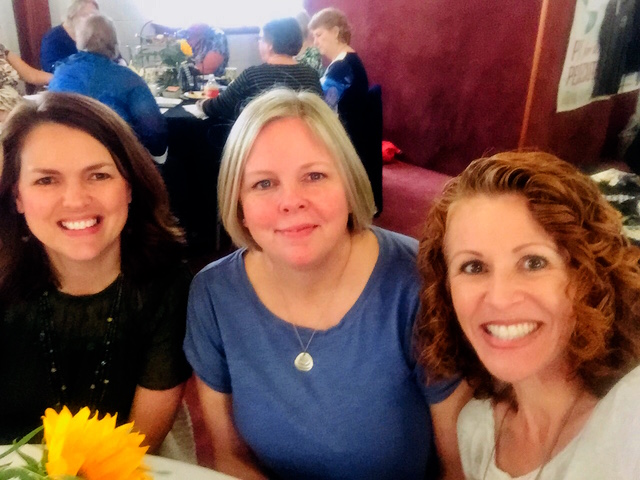5 ways to add value to someone’s life (because everyone’s a teacher)
5 ways to add value to someone’s life (because everyone’s a teacher)
I teach high school English.
We’ve been having fun with super-heroes and poetry and Scattergories and definitions of culture. This year, I’m covering ancient world literature and writing. Regardless of your immediate impression, this curriculum provides a platform overflowing with opportunities for teaching about life, purpose, and belonging.
After 6 weeks of school, and the kids are walking into my class a little differently now. They ask me what we’re doing today. They smile at me. They talk about their weekend. We’re enjoying one another. I’m no longer worried about them failing or about me receiving emails from their parents. They’re not worried that I’m going to trick them on a quiz or write mean comments on their papers. The over-achievers are satisfied that I know something about English. The strugglers have realized I can help them, or at least, won’t embarrass them.
The kids are becoming themselves. My goal is to help them become their best selves. (Click here for a blog on becoming yourself.)
We’re settling into a rhythm of trust and comfort. This is where the learning and affirmation actually begin.
My own high school teachers stand out as some of my greatest life-givers. Maybe that’s why I became a teacher. Well, that and being a know-it-all.
So many of my teachers encouraged me toward creativity and courage; they applauded my pursuit of writing, acting, public speaking, and music. They pushed me toward excellence and yet gave me space to be less than perfect. I was seen, and I was free to be seen however I wanted.

We teachers and school leaders bear a lot of civic responsibility for molding future learners and leaders, but we really shouldn’t bear it alone with the parents of our students. Yes, teachers are expected to develop talent, correct laziness, and inspire creativity. We have been tasked with the responsibility of nurturing and training young people, which is a lot harder than it sounds. Teachers befriend, counsel, teach, and coach. We must be authoritative, fun-loving, inventive, and experienced. Organized and adaptable. Daring and careful.
But here’s the real kicker. It’s not just us. Sure, we have an assigned group of people with which to attempt the impossible.
But everyone in society functions like a teacher. Everyone inspires or discourages other people from talking, dreaming, or thinking. At work, at home, or through social media, we all have the opportunity to inspire dreams or crush them. To develop personality or destroy it. To add value or steal value from someone’s life.
If you’re a student, you expect your teachers to add value to your life. If a teacher doesn’t come through with that—if they spew out meaningless information or shame you in front of your classmates—you decide to learn nothing and respond to nothing while you are in that class. You may even decide to hate the subject material, and that impression might stay with you unless an inspiring teacher intercepts your learning trajectory and affirms your place in it. (Click here for another blog on adding value.)
I’m suggesting that we ought to demand great-teacher behavior from everyone. It just makes sense. Why aren’t service-providers, businessmen, and physicians held to the same standard as teachers? Why aren’t all people expected to uplift and encourage, to speak with kindness and self-control, to call out the good without condoning the bad?
Shouldn’t everyone behave this way?
We forget that with every comment or action we make that we are adding or subtracting from someone else. We have the power to steal life or give it.
People who add value to others do so intentionally. I say that because to add value, leaders must give of themselves, and that rarely occurs by accident.
John Maxwell
Let’s all move into good-teacher-mode. Let’s inspire others to greatness. (Added bonus: that will rub off on us, too.)
Here are a few simple ideas for adding value to someone’s life today:
- Listen and empathize. I just listened to my yard guy tell me about his mother, who has dementia. I had many other things to do, but I listened and empathized and shared a little. I should’ve listened longer. (I so much prefer writing a blog about it.) Note to self.
- Offer help. Last week, a friend in crisis called me, and we talked and cried for a few hours on the phone. I asked “What can I do to help you?” A simple question. The answer could be complicated or scary (that’s why we’re often afraid to ask it), but the question remains critical. It shows you care. By the way, don’t believe people when they answer “Nothing.” (This shows they’re afraid of being disappointed.)
- Step in. Sometimes, you just need to show up and pitch in, whether you were invited to participate or not. Two of my friends stepped into my life last weekend and ran a book table for me. I was speaking at a small event, which did not really require extra help, but they wanted to come and swipe credit cards for me. To sit and listen to be talk, even though they’ve heard me a lot. Those acts of kindness added so much emotional value to my spirit. I felt seen for myself and not for the role that I was playing.
- Send a note.This is my go-to for value-adding. I learned it from my high school English and French teacher, who wrote notes in perfect cursive on tiny little cards and sent them to me, over and over. You’re a good writer. You sang beautifully. You will do great things. A hundred little notes over the years (she knew me a long time), speaking value into my life. She’s gone, but her memory is etched into my being.
- Post positive comments. Yes, social media offers an easy forum for venting, judging, and holding the world accountable (not really) for its behavior. If you find yourself using media to criticize and condemn, you are not adding value to anyone. (And the recipients of your insights will not suddenly change their positions; they will actually dig in deeper and get more hostile, so it’s really a waste of time and energy.) Instead, use your platform to edify and encourage. To quote everyone’s mothers: “If you can’t say anything nice, don’t say anything at all.”

Maybe you had a teacher who taped up the notes you passed friends for everyone to read. Or you had a teacher whose sarcasm sliced deep and elicited laughs at your expense. Or you had a teacher who forced to you struggle publicly through your most difficult task, like doing a math problem on the board or reading out loud in front of everyone.
That’s what stealing value looks like.
You see, regardless of position, everyone participates in affirming or unaffirming value. Our choices can make someone feel stupid or unnoticed—or they can make someone believe that greater things are possible, that they just might be good enough and worthy enough to reach their dreams. (Click here for a blog on leaning into your calling.)
Here’s a challenge: say something positive today. Then say something tomorrow. And the next day, and the next day after that. And don’t steal anybody’s joy or hope, because who’s to say what that someone might do one day if you said something kind?
Criticize no one. Critique nothing.
Add value to everything and everyone.

